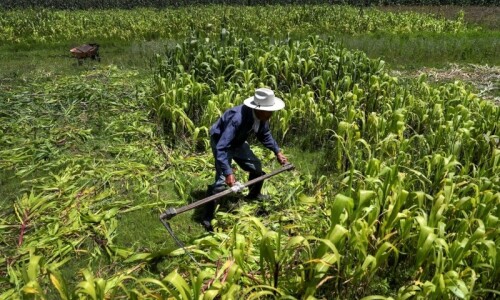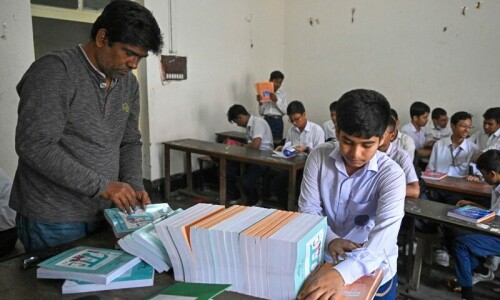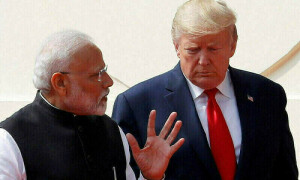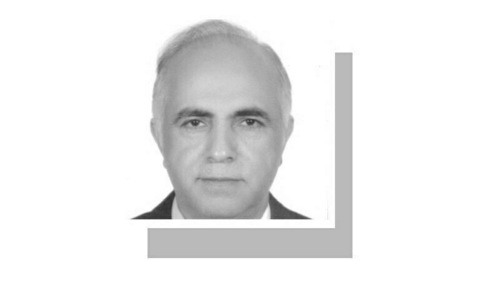DJIBOUTI-ERITREA BORDER: Camped in dunes near the Eritrean border, Djibouti soldiers wait for the enemy on this largely forgotten frontline between two small African states – on one of the world’s busiest shipping lanes.
“It’s the waiting game that kills you, the rest is easy,” said Abdi Douksieh, a commander in Djibouti’s paramilitary police.
“Our men are ready to fight. Either we beat them or they beat us, but just let it end,” he said.
Nerves are on edge and eyes fixed on the frontier where Eritrean troops launched an incursion nine months ago.
Some 2,100 men from the Djibouti Armed Forces were rushed in to repel the advance. They never expected to stay the winter in this isolated stretch between desert and sea, fighting off bitter winds and biting dust – but not the enemy.
Last April, Eritrean troops crossed the border and dug trenches near Gabla point, a disputed promontory also known as Ras Doumeira that overlooks the mouth of the Red Sea, home to some of the globe’s busiest shipping lanes.
On June 10, the two sides exchanged gunfire that Djibouti said killed nine of its soldiers. Eritrea gave no casualty toll.
The long-running row erupted twice before, in 1996 and again in 1999. But since then, tiny Djibouti’s profile has inched up in global geopolitics.
Friends with both Washington and former colonial master France, this country of 700,000 inhabitants is today a frontline state in the war on terrorism and the European Union’s new anti-piracy mission in the Horn of Africa.
Some 1,200 US troops are stationed here on the sole US military base in sub-Saharan Africa. Djibouti also hosts Paris’ biggest military base abroad.
And US ally Ethiopia – locked in its own border dispute with Eritrea – depends on Djibouti for more than 85 per cent of its exports and imports after losing its coastline when Eritrea won independence in 1993 after a bitter liberation war.
With the region already one of Africa’s most volatile, prone to famine, drought and conflict, both the United Nations and the African Union have stepped up pressure on Eritrea, which has trouble with most of its neighbours.
‘Nobody understands Eritrea’s strategy’
In a resolution drafted by France last week, the UN Security Council gave Asmara five weeks to withdraw its forces from Ras Doumeira and nearby Doumeira island and to start talks with Djibouti “to acknowledge its border dispute” and defuse tension.
Last October, the United States warned Eritrea that it faced “appropriate action” from the council if it refused to cooperate to resolve the dispute peacefully.
Eritrea quickly rejected the council’s move, saying “it obviously cannot accept a resolution asking us to withdraw our forces from our own territory.”
The Eritrea-Djibouti frontier was never legally defined, based more on old accords between former masters of Djibouti and Eritrea – France and Ethiopia in 1897 and France and Italy in 1901.
And Eritrea insists there is no territorial conflict.
With the frontline officially quiet, French troops sent in to provide intelligence, medical and logistical support withdrew from the border zone in October, leaving Djibouti troops to carry on the battle of nerves.
Tension flared again in December and Djibouti’s troops were put on maximum alert when Eritrea said it wanted to get back deserters who fled across the frontline, which stretches 100 kilometres long but at points only a few hundred metres wide.
“Deserters come through here nearly every day,” an exasperated Djibouti army Colonel Abdourahmane Cher told AFP. “But we cannot hand them over as they would be slaughtered there and then.”
“Nobody really understands Eritrea’s strategy, or goals, but it is sure that this country is acting more as a destabilising force, also against Ethiopia and in Somalia, than a part of the international community,” said an AU official who asked not to be named.
“These tensions are a growing challenge for the peace in the already fragile Horn of Africa.”
Djibouti troops, meanwhile, continue the tense waiting game.
“Eritrean forces are occupying a part of Djibouti territory and we cannot accept it,” said Cher.
“We are ready to take our land back, but we will leave the door open to talks and negotiations with the United Nations,” he said.—AFP

















































Dear visitor, the comments section is undergoing an overhaul and will return soon.